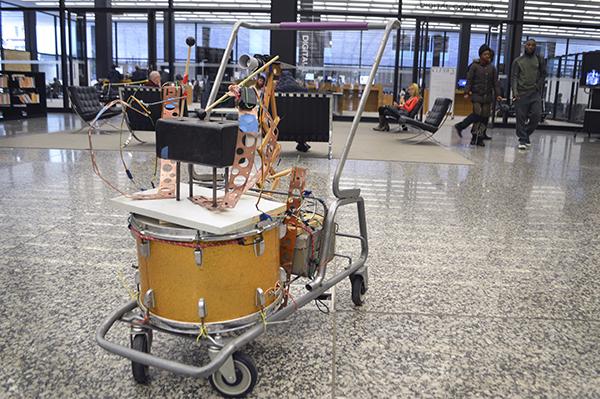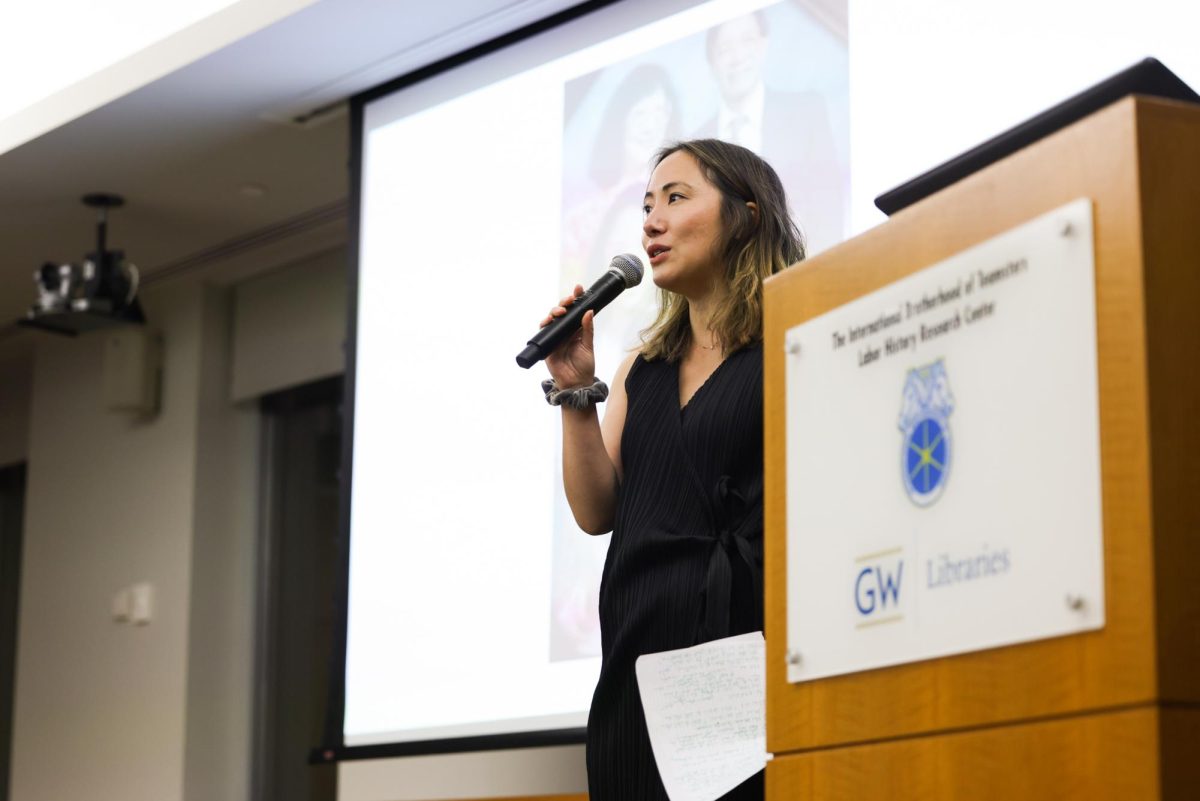A library might not be your first thought when you picture a contemporary art gallery.
But until Oct. 22, the Martin Luther King, Jr. Memorial Library on G and Ninth streets will be home to the UNCENSORED: Information Antics exhibition.
Installed in celebration of Banned Books Week, the exhibit is free to the public and consists of about a dozen works of art from local artists, ranging from Brian Davis’ motion detector to Nekisha Durett’s massive vinyl print, “I Love You Miss Celie,” which hangs outside the library. The pieces are meant to spark conversation and encourage visitors to think about how information is spread and shared.
Matthew Mann, a public library associate, artist and the exhibit’s curator for the second year in a row, hopes to spread the topics addressed in UNCENSORED spread into the larger D.C. community.
“The audience for the library is not customarily going to museums or going to commercial spaces or art centers,” he said. “It’s nice to introduce an otherwise untapped audience to contemporary art ideas.”
Although Mann’s work is not on display in this exhibit, he knows many of the featured artists personally. He added that what the pieces have in common is they start discussions about the ways knowledge spreads in the modern age. For example, artists Nate Larson and Marni Shindelman explore how easy it is to find information posted on social media in their photo series “Geolocation.”
“Each of these artists deal with how information is collected, received and then redistributed in different ways. Each artist kind of handles that with a unique perspective,” Mann said.
Some pieces appear curious and lighthearted like Billy Friebele’s found-object sculpture. An amalgamation of wires, a shopping cart, a drum, bungee cords, mallets and an arduino microcontroller, the piece is entitled “Ultrasonic Reflector” and is one of the exhibits most interactive displays.
Other pieces, however, take a more serious and solemn tone, such as Mike Iacovone’s plywood “2015 Murder Map.” The gaping holes in the wooden shape of the city are visual representations of the murders in the D.C.
A recurring theme throughout multiple pieces is the presence and influence that the National Security Agency has on the control of knowledge. Hasan Elhai’s work in UNCENSORED, “Section 215,” is a set of prints of satellite images taken of the NSA’s headquarters overlaid with a Morse Code translation of Section 215 of the U.S. Patriot Act, from which the title is taken. In 2013, a leaked court order revealed the government had used Section 215 to collect phone records of nearly every person in the U.S.
“The library is a space for the free distribution of knowledge, as opposed to the NSA’S ambitions which are dubious regarding information,” Mann said. “There’s a lot of collection and secrecy which is not public knowledge.”






